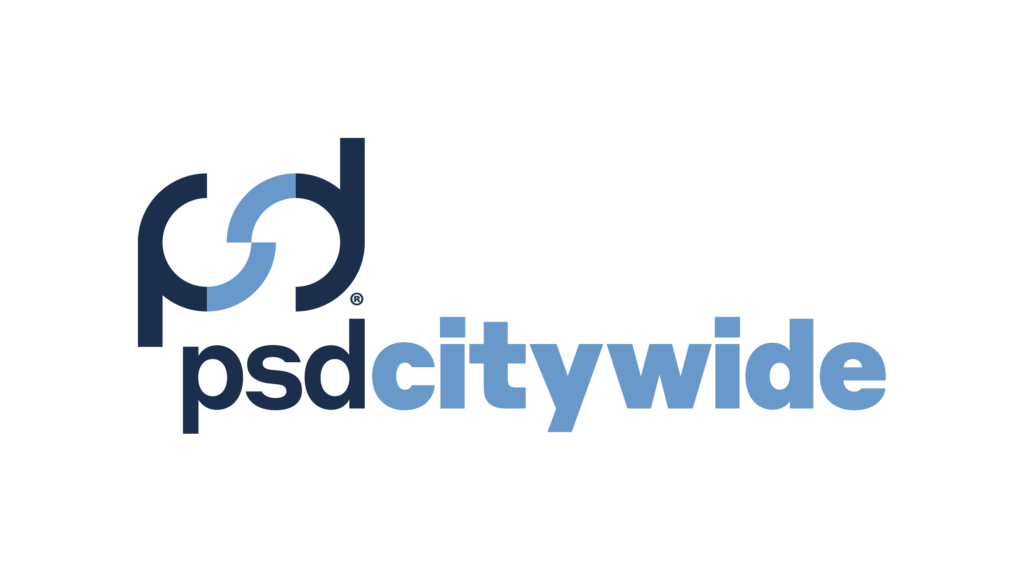The first months of the COVID-19 pandemic tested municipal practitioners in ways that no level of experience could have prepared them for. In the May-June 2020 issue of Public Sector Digest, we explored how municipal administrators were dealing with their newfound duties when Running a City During a Pandemic. The pandemic quite literally presented an unprecedented challenge – existing emergency plans prepared for extreme weather events and cyber-attacks, not a public health epidemic. As the closest form of government to its citizens, Canadian municipalities were tasked with the overwhelming responsibility of ensuring that the communities in which people live were kept safe. In conversation with city managers and CAOs, key priorities were shared and involved enacting precautions to contain the spread, including transitioning internal staff to work from home, suspending certain municipal services, and consistently staying informed with provincial and federal guidelines to limit their residents’ risk of exposure.
Canadian municipalities are resilient organizations; well-versed in providing services to residents with minimal resources. As “creatures of the provinces,” they are governed by legislation enacted in each province’s Municipal Act. And as many municipal practitioners would tell you, local governments have limited revenue sources. Property taxes, user fees, license and permit fees, and fines are the core revenue sources of municipal operating budgets across the country, whilst bonds, intergovernmental transfers, and development charges make up the majority of revenue for capital budgets. The adequacy of these revenue sources to fund local governments’ operating and capital budgets, as well as their lack of power to source revenue elsewhere, is a common debate in the municipal sphere.[1]
Even more, municipal operating budgets are not permitted to run a deficit, requiring all municipalities to balance their operating budgets annually. Coupled with numerous spheres of jurisdiction imposed by the provinces, high retirement rates, and increasing engagement pressure from citizens, municipal practitioners have to do a lot with very limited fiscal capacity.
While local governments overcame big challenges during the outset of COVID-19, municipalities continue to face the onerous task of delivering essential services to residents all while a relentless pandemic persists. Without question, the biggest impact of the COVID-19 pandemic for local governments has been on transit services and municipalities with transit systems are experiencing significant loss in revenue due to decreased ridership. In the previous issue of Public Sector Digest, I explored how public transit ridership has decreased dramatically (see UCDavis’ study on temporary and long-term changes in public transit usage in Canada and the United States) despite transit remaining a vital public service for many, especially for essential workers and as the winter months bring colder weather.
Ultimately, many local governments are faced with decreased transit revenues leading to large municipal deficits. Winnipeg Transit projected a $29.1-million end-of-year deficit due to COVID-19,[2] Saskatoon Transit has reported a $4.5-million dollar deficit [3], and Saint John Transit announced a $500,000 deficit [4]. With limited financial tools at their disposal, municipalities are presented with a difficult situation: how to deliver essential services with decreased revenue and limited financial tools?
In April, the Federation of Canadian Municipalities (FCM) called upon the federal government to better support municipalities in their roles to deliver essential services amidst a pandemic, urging that $10 billion in emergency operating funding – $2.4 billion specifically targeted for transit systems – is required to address revenue shortfalls experienced by local governments. FCM reported that municipalities are facing $10-15 billion in non-recoverable losses due to COVID-19 and foregone property taxes, utility charges and user fees, most notably, $400 million/month in transit ridership [5]. These projections are echoed by RBC Economics projections that Canadian municipal shortfalls will total nearly $12 billion in 2020 [6].
In June, the federal government released an advanced transfer of the 2020-21 Gas Tax Fund to municipalities, and in July, the $19 billion Safe Restart Agreement was announced. Intended to restart the economy and support major investments in response to COVID-19, funding is provided to each province who then administers the funding to their respective municipalities. And in August, as part of the Investing in Canada Infrastructure Program (ICIP), the federal government announced $3.5 billion to be allocated to the COVID-19 Resiliency Stream to assist municipalities with pandemic-related infrastructure projects – although not new money, this funding was announced with a faster approval process and a more generous federal cost-sharing model.
While this funding has been welcomed with open arms by all municipalities, concerns surrounding funding deficits remain, especially in communities with transit systems. Upon the release of the City of Ottawa’s 2021 budget, Mayor Jim Watson reported that their revenue transit shortfall is projected to reach $73 million [7]. Moreover, in a report analyzing the effects of COVID-19 on Canada’s largest cities, RBC Economics theorized that cities would have to enact a seven to 15 percent property tax increase to cover COVID-19 related costs due to limited options available to local governments to increase their revenue streams. Likewise, Ottawa City Manager Steve Kanellakos reported that if more funding isn’t made available, the City will have to defer capital projects, tap into reserves, and worst case scenario, cut services to residents [8].
Of no surprise, many have deemed the current fiscal state of municipalities in Canada as a financial crisis, and certainly, large cities and the services they provide to citizens have a crucial impact on the Canadian economy as whole. Not only does decreased transit ridership lead to significant revenue deficits for canadian municipalities, but it also lessens economic activity within cities as well. The state of cities and their financial turmoil has been covered extensively, however, it doesn’t capture the full local government story; there’s a gap in the discourse that overlooks the experience of small municipalities across Canada. I spoke with municipal administrators from five communities with a population under 10,000 to better understand the COVID-19 impacts on small-town Canada as the municipal budget season nears.
The state of cities and their financial turmoil has been covered extensively, however, it doesn’t capture the full local government story; there’s a gap in the discourse that overlooks the experience of small municipalities across Canada.
In Conversation with Small Town Canada – COVID-19 Impacts on Canadian Municipalities
The municipal financial burden of COVID-19 can be equated to increased expenditures and decreased revenue (see “Municipal Finance and COVID-19 in Canada” by the Institute of Municipal Finance and Governance). However, John Enns-Wind, CAO, Town of Grand Bay-Westfield New Brunswick shared that that finding is not as straight-forward for smaller municipalities. He noted that although revenue has decreased and expenditures have increased, there have been some operational savings that have outweighed some of the expenses.
Michael McGovern, Treasurer for the Township of Central Frontenac Ontario, reiterated this notion noting that the municipality was able to save money on heating facilities in March and April, as well as this upcoming winter, while also saving money by not having the regular swim program which costs the municipality more money to operate than the revenue it brings in. Mayor Al Friesen also shared that the Town of Altona, Manitoba saved money by not opening their community pool, an operating cost that is never fully covered by user fees.
Of course, small towns were not exempt from COVID-19 related expenditures. Michael McGovern, Township of Central Frontenac, reported an overall pandemic cost of $193,000, the majority stemming from lost revenue associated with personnel, lost property tax and bank interests revenue and then additional costs related to the purchasing of personal protective equipment and cleaning supplies. The Township received $251,000 in Safe Restart Funding to help cover these costs.
Likewise, Steve Hart, CAO for the Town of Oromocto, New Brunswick reported $100,000 in COVID-19 related expenditures including IT capacity for remote work, infrastructure changes to facilitate safer working spaces, personal protective equipment, and extra cleaning capacity.
The biggest economic impact of the COVID-19 pandemic on small municipalities has been on Recreation and Facilities. Hart reported that the majority of lost revenue for the Town of Oromocto, an overall net impact of $250,000, was from limited facility bookings and waving of fees for community-based businesses that use and rent their spaces.
Likewise, Patrick Kelly, Director of Corporate Services/Treasurer for the Township of Wilmot Ontario also noted that a significant portion of lost revenue is tied to the closure of the Wilmot Recreation Complex. Despite the Township of Wilmot’s loss in revenue, Kelly shared that the Township was proactive in offsetting this deficit on the expense side. Year over year municipalities have operated with limited revenue tools without having the flexibility to yield a year-end deficit. In turn, municipalities have been conditioned to be agile in the face of revenue shortfalls and increased expenditures, a principle that remains true even during a public health pandemic. Kelly shares, “We operate in a manner that promotes fiscal responsibility all the time; not being able to budget for large deficits makes us more prepared for when we don’t have the same revenues.”
To offset their deficit, the Township of Wilmot enacted cost-containment strategies to reduce costs on discretionary spending items such as training and development, office supplies, general maintenance contracts (e.g. grass cutting), scaling back their capital portfolio, and staffing adjustments (100 part-time casual staff were put on declared emergency leave throughout the early stages of the pandemic). Those strategies enabled the Township to diminish their deficit from $1.5 million to $500,000. Coupled with $85,000 in direct spending on COVID-19 related expenses, $482,000 in Safe Restart Funding will cover the municipality’s outstanding deficit.
Preparing for 2021 Canadian Municipal Budgets
When asked how their administrations are approaching the 2021 budgets, many referenced 2020 as helpful in providing many answers. Across all provinces, Hart, Town of Oromocto, shared that communities have experienced varying levels of “openness” throughout 2020 which has allowed his administration to be better prepared for different circumstances dependent upon how the pandemic proceeds in 2021, stating, “We have assumed 2021 is going to look similar to the last three quarters of 2020 and we projected our revenues accordingly.”
Likewise, John Enns-Wind, Town of Grant Bay-Westfield submitted that administration is approaching the 2021 budget knowing that pandemics can last far beyond what we had previously expected COVID-19 to last, and certainly well into next year. In turn, he has instructed his administration to allocate COVID-19 expenses as operational costs in the Town’s 2021 budget and that those costs need to be normalized.
Not one of the five municipal administrators I spoke to reported a significant deferral of property taxes in their communities, whether issued by the municipality or province or applied for by residents. Mayor Friesen noted that the Town of Altona did redo their 2020 Budget to enact a zero percent property tax increase rather than the planned two to three percent increase and offered a sixty-day grace period for residents if they wished to apply, though very little did.
While this is good news for 2020 budgets, as municipalities begin to finalize their 2021 budgets, Michael McGovern warned that it will be more difficult for local governments to raise their tax levies beyond the cost of living while people are still feeling the impacts of COVID-19. Property taxes are one of the very limited ways that municipalities can increase their revenue and even then, most provincial governments have enacted various property tax rate restrictions on municipalities. Regardless, property tax makes up an average of 46 percent of municipal revenue across the country [9] and without an increase, the foregone revenue may be unable to meet the demands that another pandemic year could bring.
Mayor Friesen didn’t hesitate to profess that 2021 budget season does bring with it some caution and uncertainty. As COVID-19 restrictions fluctuate, local governments cannot be certain of when or how long those fluctuations will take place and in turn, what projects and or activities they can commit to in 2021. Although they continue to plan as they normally would, the Altona administration is realistic to the fact that some activities may have to be deferred next year as well.
Along a similar vein, Patrick Kelly, Township of Wilmot, concluded that softer service revenues, such as Recreation, aren’t going to bring in anywhere near what they do normally, which will mean that the Township will have to make tough decisions in deciding not to allocate as much to capital projects and/or reducing the amount that is transferred to infrastructure reserves.
Although local governments have had to defer certain projects and activities, their familiarity with being required to balance their budgets allowed them to continue to deliver services to their residents despite fiscal tension.
The Non-Fiscal Impact of COVID-19 on Canadian Municipalities
The pandemic impact on recreation and facilities in small towns extends to a broader issue being experienced by municipalities across the country, one that is not recorded in year-end budgets. In early November, Brett Clark, Manager of Parks and Facilities for the City of Kimberly, British Columbia resigned after being bullied and harassed after the closure of two community recreation centers [10]. Although rightfully abiding by provincial and federal COVID-19 guidelines, Hart, Town of Oromocto, resonated with how difficult a decision it is to close facilities. He states, “Before the pandemic, we may have underestimated how much community spaces and facilities mean to a city or town; playgrounds and trails, fields and rinks – their importance is clearer than ever. It’s a constant struggle to balance the legal and moral obligations regarding public health guidelines with the constantly evolving demands of the citizens that rightly want their family to have access to facilities.”
Mayor Friesen, Town of Altona, shared that one of the most difficult issues facing municipalities beyond financial woes is the enforcement of provincial and federal health guidelines when there are always those that do not accept or agree with said guidelines. Municipalities are frontline service providers and the closest level of government to residents, and consequently, when residents fail to follow with mandated health guidelines, local governments must contend with that pushback.
Mayor Friesen shares, “Like in many other municipalities across Canada, as our community moves into much more aggressive wearing of masks and enforcement of those bylaws, you’re faced with those that find preventative measures not necessarily accompanied with non-fact based dialogue, which is not positive for a community. Our staff are trying to do their day jobs on top of now being in charge of COVID-response measures. I think as a rule, governments have tried their best to pivot in a hurry and make things happen and as a community, this is our time to ask the proper questions and do our part. Unfortunately, non-fact-based dialogue can get in the way of the positiveness of a community and serve little purpose. That being said, the majority of the community are doing their part.”
In true municipal fashion, my conversations with municipal administrators shifted back to focusing on the residents. The pandemic has underscored the pertinence of the close proximity that municipalities have with their residents. Whether it involves enforcing health guidelines or delivering municipal services, administrations have had to adjust how they engage with their residents. John Enns-Wind, Town of Grand Bay-Westfield, stresses: “The success of our job in the municipality is based on engagement with our residents; being able to hear, understand and listen to them has been limited, and if engagement has persisted, it’s been through a platform that creates a barrier to good communication. Issues that may just be minor irritants might become more loaded.”
Conclusion
It was enlightening to hear how the small Canadian municipalities I spoke with were managing as they near the end of a challenging and unprecedented year. Although local governments have had to defer certain projects and activities, their familiarity with being required to balance their budgets allowed them to continue to deliver services to their residents despite fiscal tension. Steve Hart noted, “Most of our services are essential and need to be delivered regardless of the pandemic. The municipal sector was the last sector to be provided financial relief. Regardless, municipalities have quietly and effectively managed their business throughout this pandemic.”
The administrators I spoke with were sure to note that they are in more fortunate circumstances than their larger counterparts, recognizing the hardship that larger cities with transit systems are currently facing due to low ridership. Likewise, Alberta communities are facing their own set of challenges as the province’s viability review process nears and communities struggle to collect energy taxes (see the Globe and Mail’s article, “Disappearing towns: Alberta municipalities struggling with crumbling infrastructure, meagre finances”).
The impacts of the COVID-19 pandemic will continue to be felt throughout the rest of this year and into 2021. Entering the municipal budget season, we are seeing varying degrees to which municipalities, big or small, are able to balance their budgets. What is clear is that municipalities have had to either defer projects, suspend services and or rely on intergovernmental transfers to ensure no end-of-year deficit as they continue to deliver essential services.
As discussed earlier in this article, the adequacy of the limited sources applicable to fund local governments’ operating and capital budgets, as well as their lack of power to source revenue elsewhere, is a common debate in the municipal sphere. Many lessons can be learned from this pandemic, but providing greater fiscal capacity to municipalities who persevere in providing essential services to residents in the face of a pandemic ought to be one of them.
SLOANE SWEAZEY, MA completed her master’s degree from the University of Guelph in Political Science, specializing in Canadian Public Policy.
[1] https://tspace.library.utoronto.ca/bitstream/1807/99780/1/IMFG_Paper_No47_Power_and_Purpose_Taylor_Dobson.pdf
[2] https://globalnews.ca/news/7323928/winnipeg-transit-deficit-coronavirus/
[3] https://saskatoon.ctvnews.ca/city-s-year-end-projected-deficit-jumps-to-just-over-20-million-1.5201789
[4] https://www.country94.ca/2020/10/31/transit-services-receiving-government-assistance-for-covid-19-impacts/
[5] https://fcm.ca/en/news-media/news-release/covid-19-municipalities-seek-emergency-funding
[6] https://thoughtleadership.rbc.com/canadian-city-finances-ailing-from-covid-19/
[7] https://www.cbc.ca/news/canada/ottawa/city-deficit-152m-2021-covid-19-1.5788194
[8] https://www.cbc.ca/news/canada/ottawa/city-deficit-152m-2021-covid-19-1.5788194
[9] https://tspace.library.utoronto.ca/bitstream/1807/98034/1/Perspectives-27-Kitchen-Slack-Hachard-Property-Tax-Issues-Prospects.pdf
[10] https://www.cbc.ca/news/canada/british-columbia/kimberley-covid-restriction-parks-manager-resignation-1.5797808



